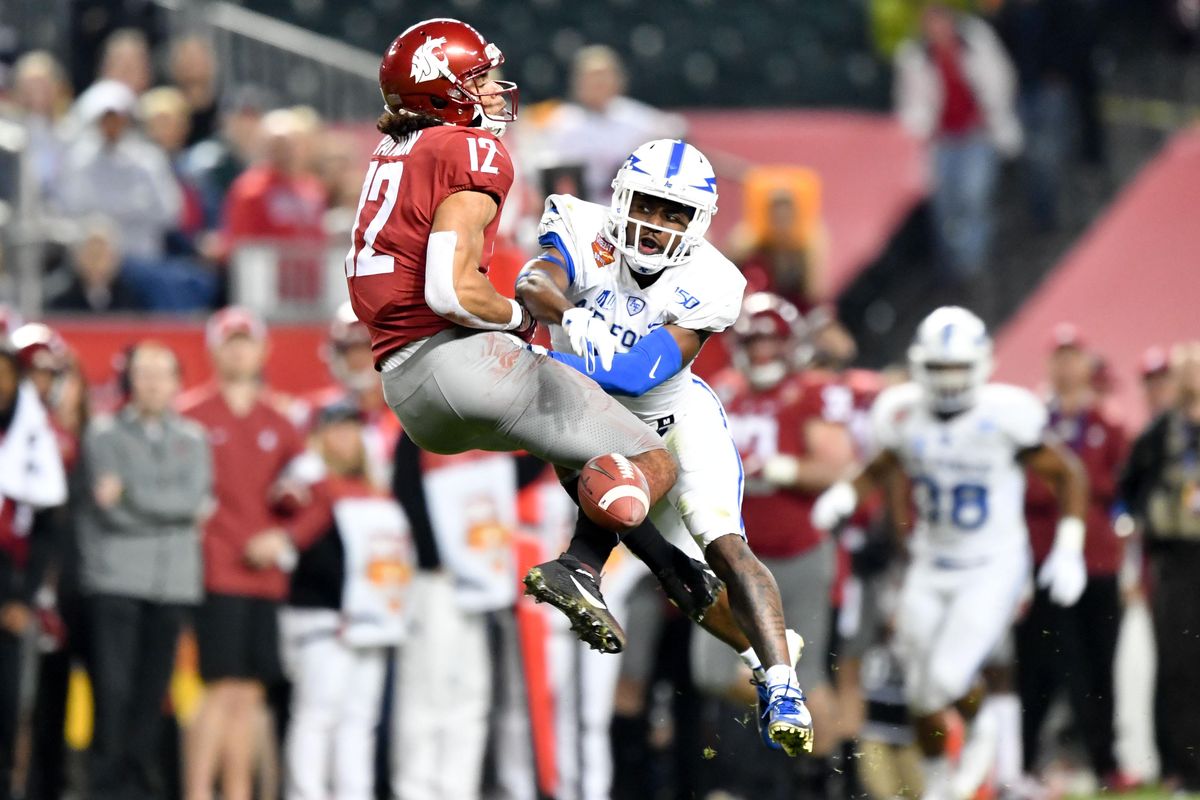Air Force quiets Air Raid sirens as Falcons down Washington State in Cheez-It Bowl

PHOENIX – When asked about his offensive system at Ohio State in the 1960s, the legendary Woody Hayes remarked, “There are three things that can happen on a forward pass, and two of them are bad.”
It’s a philosophy Air Force coach Troy Calhoun and his squad have taken to heart more than five decades later, even as other collegiate programs have adopted aerial attacks derived from a West Coast style of play.
Friday night’s Cheez-It Bowl matchup between Air Force and Washington State served as the ultimate litmus test for Calhoun’s offense, as the 13th-year coach trotted out his triple option “Flexbone” against the infamous Air Raid strategy of Mike Leach.
It turns out, Hayes might have been on to something.
The Falcons ran the Flexbone nearly to perfection, and Kadin Remsberg found the end zone on a diving effort with less than four minutes to play to propel the squad to a 31-21 victory over the Cougars at Chase Field.
“My coaches were telling me that getting to the edge was probably the best thing to do, so I could use my speed,” Remsberg said of his game-clinching touchdown. “I got my blockers out there, those guys were doing their best to get me out on the perimeter. I knew I had to score, so I was going to do everything I could to get in the end zone.”
The result was not only the fifth bowl win for Air Force (11-2) under the direction of Calhoun, it also marked the first losing season for Washington State (6-7) since 2014.
“I thought Air Force did a good job distributing the ball, I thought in particular they did a good job falling forward,” Leach said. “I think Air Force did a better job on key downs than we did … we didn’t get them off the field.”
The triple option caused headaches for the Cougars all night, beginning with Air Force’s opening drive. The Falcons used a monster possession that spanned 98 yards and chewed up 12:15 of the clock to take the first lead of the game, following a 1-yard touchdown run from DJ Hammond III.

“Just to chunk out a drive like that – there are more glorious drives that have a lot bigger gains,” Calhoun said. “I’m not sure how many highlights were on that drive, but it was somewhat vintage.”
From that point on, the Falcons never trailed. Remsberg churned out a game-high 178 yards rushing on 26 carries to spearhead the Air Force ground game, while Taven Birdow added another 108 yards and his lone score late in the second quarter.
But the offense was not the only element on display for Air Force. Despite allowing Washington State wideout Brandon Arconado to carve up the secondary for 167 yards and a touchdown catch, the Falcons were able to hold strong for a pair of crucial fourth-down stops inside the 10-yard line, helping the team maintain momentum in pivotal moments of the game.
“More than anything else, I think it really settles you down when you’re able to come up with a stop,” Calhoun said. “I’ll say this, I’ve been around some pretty good football teams and really great players, but collectively the amount that these guys invest in the preparation part of it is beyond impressive.”
The result also reflected the two contrasting paths facing each program as they head into the offseason. While the Cougars are left to ponder what went wrong, the Falcons will use the bowl win as a key tool in recruiting efforts in the upcoming months.
“I think (the season) was up and down,” Leach said. “We had the opportunity to be better this season … I thought we were capable of more, and we’re going to do everything we can to achieve that as we go into our offseason.”